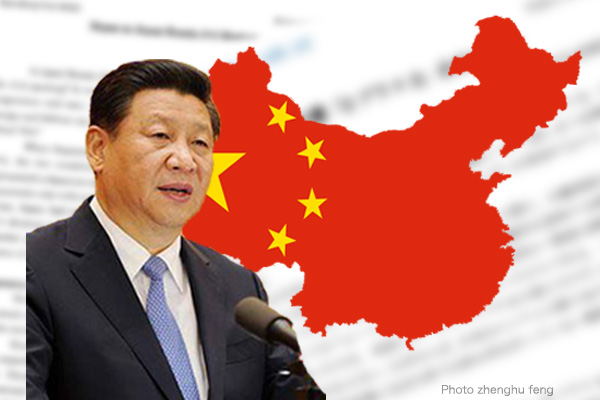China’s population decreased last year for the first time in 61 years, eight years faster than anticipated by the United Nations World Population Prospects and the Chinese Academy of Social Sciences. At the same time, gross domestic product growth in 2022 slipped far below the government’s target of 5.5%, indicating economic deceleration. China’s working population has already declined. In the future, elderly population will increase while young population falls. The historic structural change will inevitably cause a strong headwind against Chinese President Xi Jinping’s dictatorial strong nation policy. The problem is that China may come closer to a “peaking power trap” situation in which a rising state whose power peaks becomes aggressive toward other countries as it becomes fearful of its impending decline.
Population declining with economic growth decelerating
China’s population at the end of 2022 decreased by 0.85 million from a year earlier to 1,412 million largely due to the lowest number of births since its founding. China has taken advantage of the world’s biggest working population to achieve rapid economic growth as the “factory of the world.” As population turns downward, however, China shoulders a new burden of falling birthrates and aging population.
Concurrently announced GDP growth in 2022 came to 3.0%, the lowest since the 1970s, excluding 2020 when Chinese growth plunged due to the pandemic. Affecting China’s economic growth were its strict zero-COVID policy restricting production and consumption, the collapse of real estate bubbles, expanding debt and economic decoupling including U.S. export restrictions. While the Chinese economic activities may recover, no high growth as before is likely to come over a longer term. As social security spending expands in response to the rapid aging of population, China may become a suffering super old power.
The Japan Economic Research Center late last year noted that China was unlikely to replace the United States as the biggest economy in the world, reversing its earlier prediction that such replacement may come in 2033. China is required to promote its structural reform in response to its declining population. However, the Xi regime pursues its top-down political control and mercilessly oppresses opponents.
Growing tensions in Taiwan Strait
According to Johns Hopkins University Professor Hal Brands and Tufts University Associate Professor Michael Beckley, a rising state that seeks to become a hegemon fears its impending decline and tends to take bold actions to make a breakthrough before it’s too late. In their paper published in the U.S. Foreign Policy magazine in September 2021, they presented a scenario that China is now heading for such peaking power trap.
Czarist Russia, the German Empire and the Empire of Japan commonly featured a rapid emergence and fear of decline. When they concluded their path to glory was hampered, the tragedy occurred. China may target Taiwan against which Xi repeatedly vowed not to renounce the use of force. If the U.S. and its allies fail to deter China, the price will be bigger than that of the failure to deter Russia’s aggression against Ukraine.
As far as China has possibilities to fall in the peaking power trap, Japan should enhance its deterrence against China by securing its counterstrike capabilities under its goal of boosting defense spending to 2% of its GDP. This is because history has taught us that miscalculations and accidents have led to many wars.
Hiroshi Yuasa is a Planning Committee member and a senior fellow at the Japan Institute for National Fundamentals. He is also a columnist for the Sankei Shimbun newspaper.


